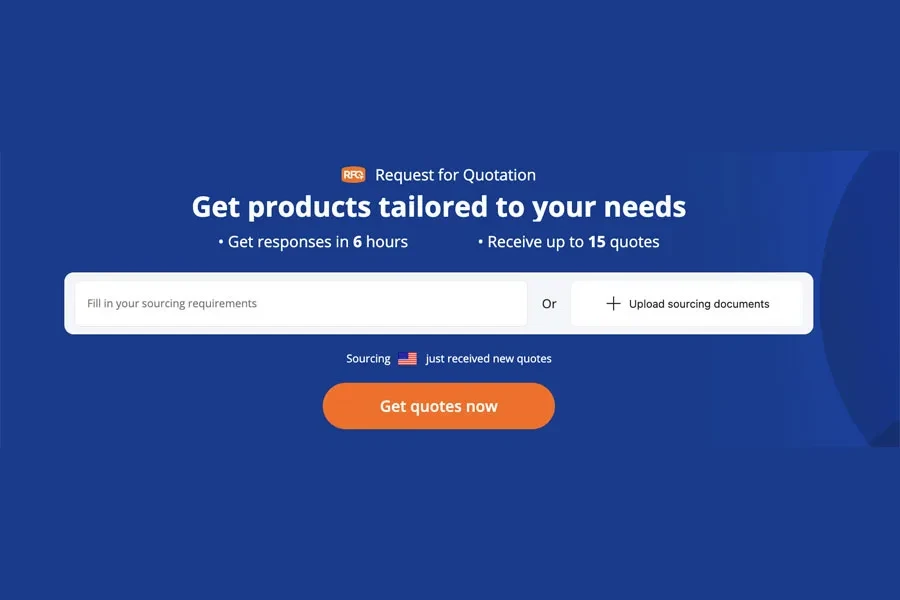Alibaba.com stands as an amazing hub for opportunity in the increasingly vast and interconnected world of global e-commerce. As a premier sourcing platform, it offers a myriad of benefits that resonate with buyers worldwide, making it an indispensable tool for businesses of all sizes and industries.
At the heart of Alibaba.com’s appeal lies its unparalleled accessibility to a diverse array of suppliers spanning every corner of the globe. From established manufacturers to niche craftsmen, the platform boasts a huge network that empowers buyers to discover, connect, and transact with ease. This extensive reach not only broadens the scope of available products and services but also fosters healthy competition, driving innovation and ensuring competitive pricing.
One problem that sellers can face, however, is how to whittle the seemingly endless number of suppliers down to those that are best suited to their specific needs and manufacturing requirements. Here, we’ll break down how buyers new and old to the site can utilize one of Alibaba.com’s most useful features: Request for Quotation (RFQ).
Table of Contents
What is Request for Quotation?
How does RFQ work?
How to get the most out of RFQ
Conclusion
What is Request for Quotation?
In short, Request for Quotation (RFQ) allows buyers to streamline the sourcing process, enabling them to overcome some of the complexities of procurement – whether it’s bulk orders, custom products, or specialized services – through an all-in-one form.
RFQ is particularly useful for businesses seeking tailored solutions, and caters to a diverse range of buyers, including small to medium-sized enterprises (SMEs), startups, and large corporations, by providing a platform to efficiently solicit price quotes and proposals from multiple suppliers.
For SMEs and startups, RFQ offers a gateway to explore new suppliers and products while ensuring competitive pricing and quality assurance. It empowers these businesses to leverage the global marketplace effectively, facilitating growth and expansion opportunities.
Large corporations benefit from RFQ by streamlining their procurement processes and fostering transparency in supplier relationships. By inviting competitive bids and facilitating negotiations, RFQ helps optimize costs and maximize value for these organizations.
In essence, RFQ is a versatile tool that caters to the diverse needs of businesses across industries, empowering them to make informed purchasing decisions and forge valuable partnerships in the dynamic landscape of e-commerce. Best yet, it’s completely free!
How does RFQ work?

Using RFQ on Alibaba.com is as straightforward as one, two, three: simply navigate to Alibaba.com, fill in a product request form, and send! Then sit back as the quotations roll in; on average, buyers can expect to receive up to 15 quotes in as little as six hours from over 200,000 qualified suppliers across 200 million-plus products. You can rest assured that these suppliers are serious about your products too, as they are charged per request answered.
Here’s a more detailed look at how to submit a RFQ:
- First, log in to your Alibaba.com account and navigate to the Request for Quotation section.
- Click on “Post Request for Quotation” and fill in the necessary details, including product specifications, quantity, delivery terms, desired price range, and any other specific requirements.
- Submit the RFQ by clicking “Get quotes now,” and wait for suppliers to respond with quotes and proposals.
- Review and compare the received quotes, negotiate terms if necessary, and select the most suitable supplier for your needs.
How to get the most out of RFQ

While posting an RFQ is simple, what you get out of it will be determined by how specific you are in your initial request as well as how well you’re able to communicate your needs once you connect with a suitable supplier. With that in mind, here are some tips to get you started:
- Provide detailed specifications: As mentioned just now, clearly outline your product requirements, including dimensions, materials, desired features, and any other pertinent information.
- Set realistic expectations: Be transparent about your budget, timeline, and quality standards to attract suitable suppliers.
- Research and vet suppliers: Prioritize reputable suppliers with positive reviews and relevant experience in your industry, taking specific note of Verified Suppliers who have a proven track record of providing products to spec.
- Communicate effectively: Promptly respond to supplier inquiries and provide clarifications to ensure mutual understanding.
- Negotiate wisely: Use RFQ responses as leverage to negotiate competitive pricing and favorable terms that align with your business objectives,
Conclusion
As more and more people turn to the world of e-commerce to start up businesses and bring their products to life, Request for Quotation stands as one of the best ways to do so quickly and efficiently. Offering unparalleled opportunities to expand their reach via new business opportunities, RFQ grants sellers gain access to a global pool of buyers actively seeking their products or services.
Additionally, RFQ empowers sellers to showcase their expertise, customize offerings, and compete on a level playing field, ultimately fostering growth and sustainability in today’s competitive marketplace. Embracing RFQ as a strategic tool enables sellers to unlock their full potential, capitalize on opportunities, and thrive in the ever-evolving landscape of e-commerce.
For more tips on how to use the tools available on Alibaba.com as well as elsewhere online, make sure to subscribe to Alibaba.com Reads.



